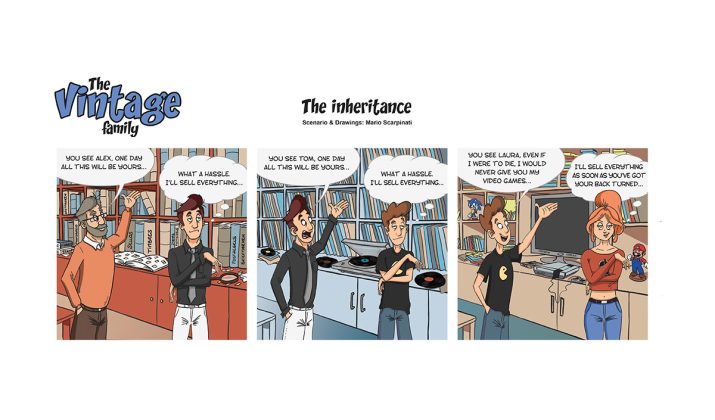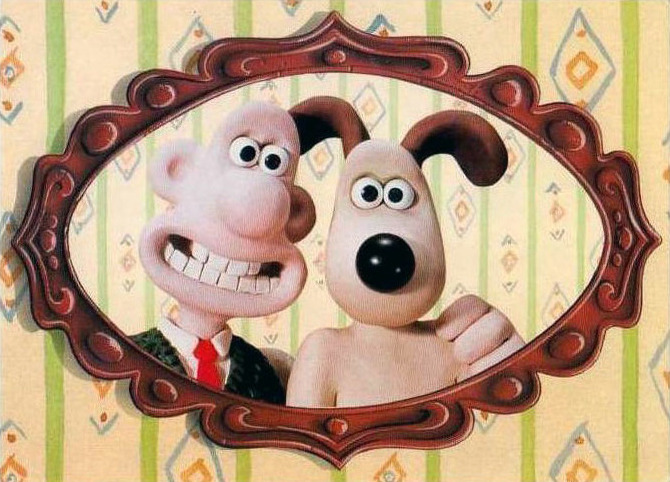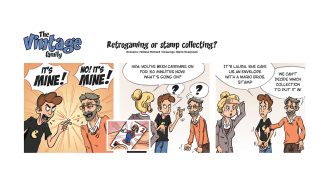Collecting is a pastime that takes time. How do you share your passion with the next generation?
One of the most common preoccupations among collectors is figuring out what will become of their collection after they pass away. Often, they don’t have anyone specific in their family to whom they can entrust the treasures they’ve amassed over the years.

 What to do?
What to do?
Many decide to forget about it and sell their collection while they’re alive. They’re not wrong when it comes to their heirs: they get rid of a major headache for them. As a matter of fact, if no one is interested in taking over the collection, it’s a fair bet that no one really knows its true value. As a result, it’s very easy to be taken when reselling it. If the collector sells it (via Delcampe, for example), they’ll be able to identify the valuable items and get the best price for them.
Personally, I always think it’s best to encourage your children’s interest in your collection from a young age. Do you collect comics? Read them with your children! Do you collect stamps? Organise fun activities based around stamp collecting. No ideas? We’ll give you some!
 Getting children interested in stamp collecting
Getting children interested in stamp collecting
There’s no point in trying to win over the crowds with your collection of Ceres stamps! Choose something more accessible, based on things that the child is interested in.
Whether it’s flowers, animals or their favourite sport, choose a subject that speaks to them. An online search for possibilities will surely please them. You can’t expect to get them to sit down for an entire afternoon with a pair of stamp tongs and organise albums with stamps just yet – you probably won’t achieve the success you hope for!
On the other hand, by searching online with them, perhaps making some drawings of the subject you chose together, you’ll have a much greater chance of passing your passion on to your child.
 Get your children interested in postcards
Get your children interested in postcards
You can also give a nice, fun introduction to postcards by choosing a subject. Once again, you have plenty of choices. Beyond the subject, you can also get them interested by showing them what places they are familiar with used to look like. Whether it’s their school, the neighbourhood square or their street, you’ll pique their curiosity. A great introduction to create a new passion…
In general
Inquisitive young minds are easily interested in things if you create the opportunity. Don’t take them to a specialised group (save that for later). They risk becoming bored and your visit will have the opposite effect from what you intended. On the other hand, a fun visit to the museum (if possible, not too long and ending with ice cream!) will probably create the “blankie effect”.
For those who haven’t heard of this, we call the need to bring a souvenir home from a visit the “blankie effect”. There’s a good reason why museum souvenir shops are full of wonderful related products for tourists to snap up.
It’s a simple trick: purchase one of the products from the category you collect (stamp, postcard, coin, toy, figurine, etc.). Then, make another visit on a separate occasion using the same approach. You’ll have started your child’s collection! And on top of that, you’ll get to spend some quality time with them.
Pick the topic that interests you together on Delcampe!






Thank you, Heloise for the fine article on collections. I hope my teenages keep many of my 2.500 books (all non fiction) when I go. With my mom passing away last month, it’s clear that one persons treasures may not hold the same importance to another.
Best to you !
Mike Bush
Whittier, California
I am from a book-loving family and understand your concerns. Here are, if I may, a few remarks from my experience.
I am originally from France and now live in Virginia. When my father passed away in France, his books (among which, some very nice collections and anthologies) were divided between his children. I thinned my lot by giving away more volumes to my siblings. Yet, I discovered that it would cost thousands of $ to have my lot shipped (by sea) to Virginia. Having a third party move even a modest number of books is very expensive.
Non fiction books do age, some contents become outdated (e.g. astronomy and all sciences); nowadays, via the internet, a lot of up to date information is easily retrieved without taking up any space. Also, for pennies, thousands of titles can be read on line. I prefer the paper volumes, but I am of the old generations; the cellphone generation will have a different perception.
There is a lot of turmoil and stress after the last surviving parent passes away: disposal the contents of the whole house, of the house itself to settle the inheritance may have to be done as quickly as possible.
Books are heavy. 2500 of them instantly translate into at least 2500, maybe 5000 lbs.: days of unshelving, packing, carting heavy boxes to… where? After I’m gone, the house will be sold. Who will move all those books out of the basement, living room, bedrooms? Will my children have enough space for them in their own homes? I have a child living in a small urban apartment where space is at a premium, hundreds of miles away. Will my children pay to keep those books in a storage locker for years?
Unless they are rarities, books quickly become an encumbrance to heirs. If some of your books are genuinely special (e.g. first editions, limited editions, signed, dedicated, etc.) make sure your heirs are informed of the facts. At the same time, since verbal notice might get forgotten, devising a way to clearly identify the most valuable books might save the best of your collection: explanatory list, resale value (usually quite low, but check it out on the internet), labels, grouping in a designated area in your library. If some of your books have a sentimental value (received as gifts, influential contents, etc.), again make it clear to your heirs. To surely transfer your favorite volumes, have your children relate to them in a sentimental and intellectual way. Have them know how you felt when you held them and read them, what they gave you; then, they will see you, remember you in those books.
There is one solace for collectors: as long as the items are not thrown into a dumpster, they will probably find new owners who will value and cherish them for another lifetime. Those stamps, postcards, posters, books we purchase at auctions were indeed “recycled” from defunct collections and libraries. When, outlasting us, they continue giving pleasure and joy to others, however anonymous, they have not been saved in vain.
Awesome topic. This is my 1st time here at delcampe.net .
This has become an issue of mine, as I push 45 this past August.
I have collected since a child of 11 years.
I was interested in my father’s stamp albums .
Always loved seeing other countries stamp art and text. It brought a feeling of a deeper connection to understanding their culture.
I’ve gone so many years without concerns of a money value . That now I do worry my children or family might mistake something that may be of value as trash.
So this is my attempt to start an evaluation.